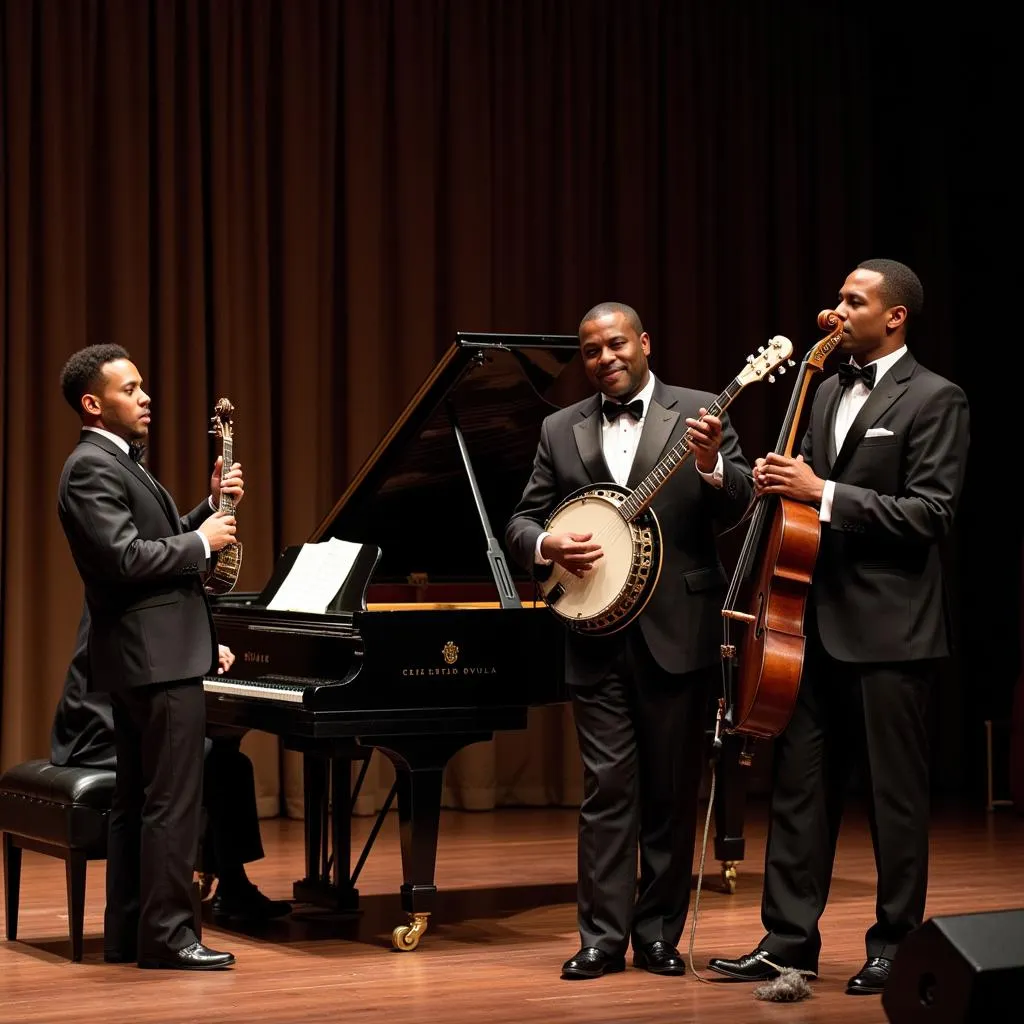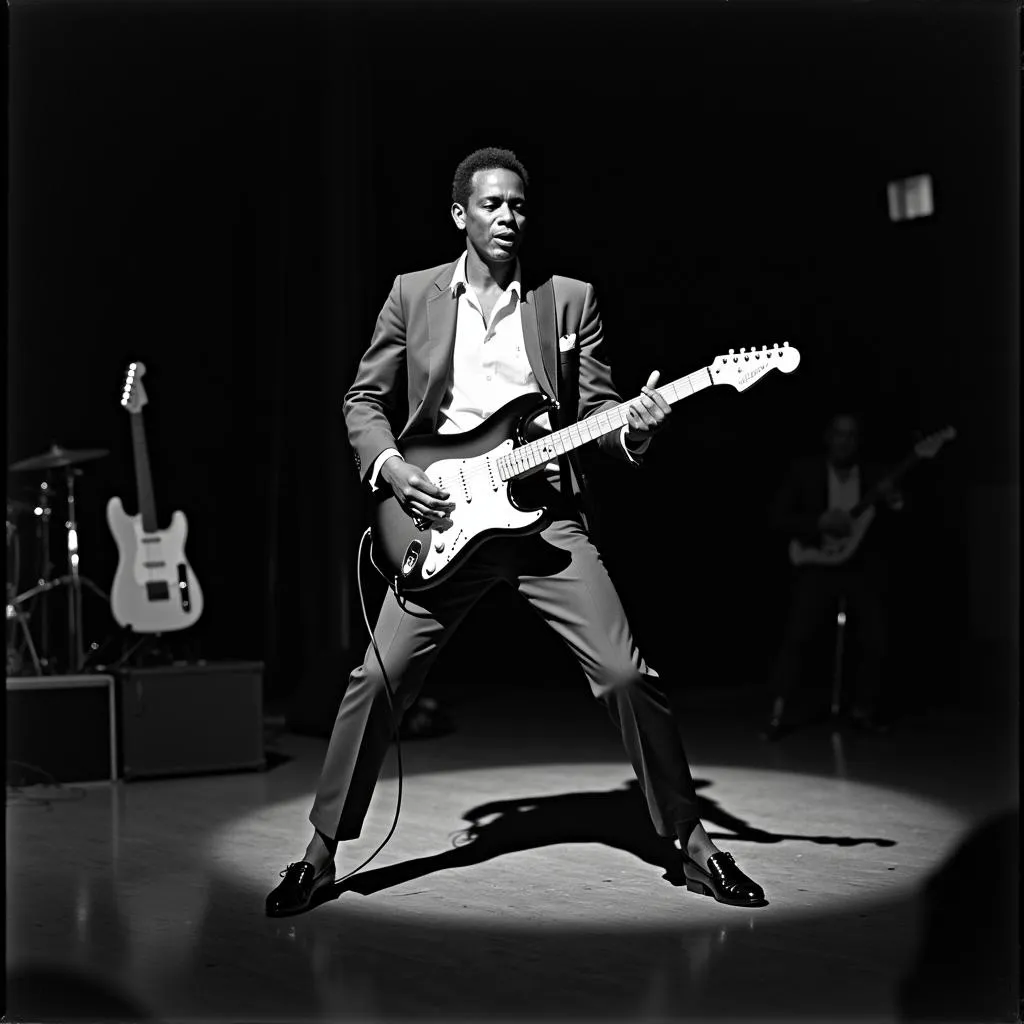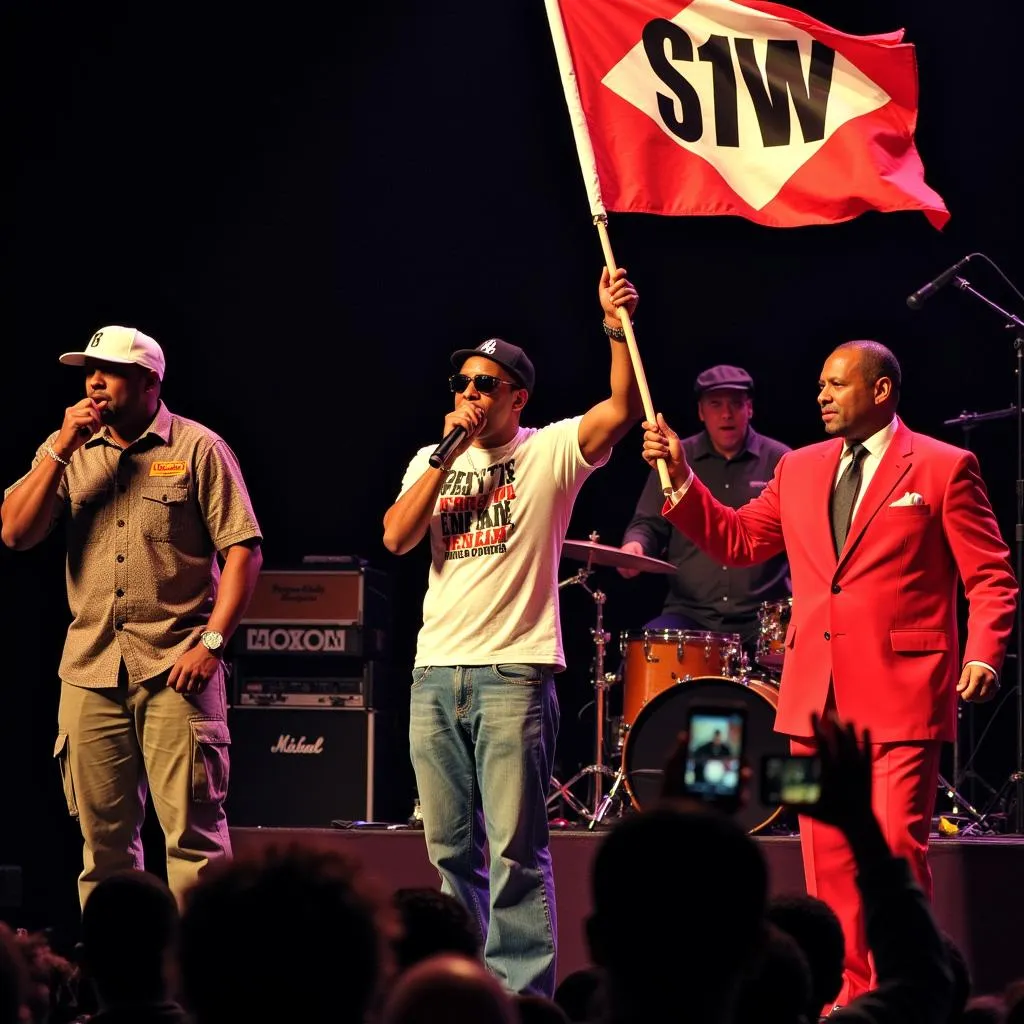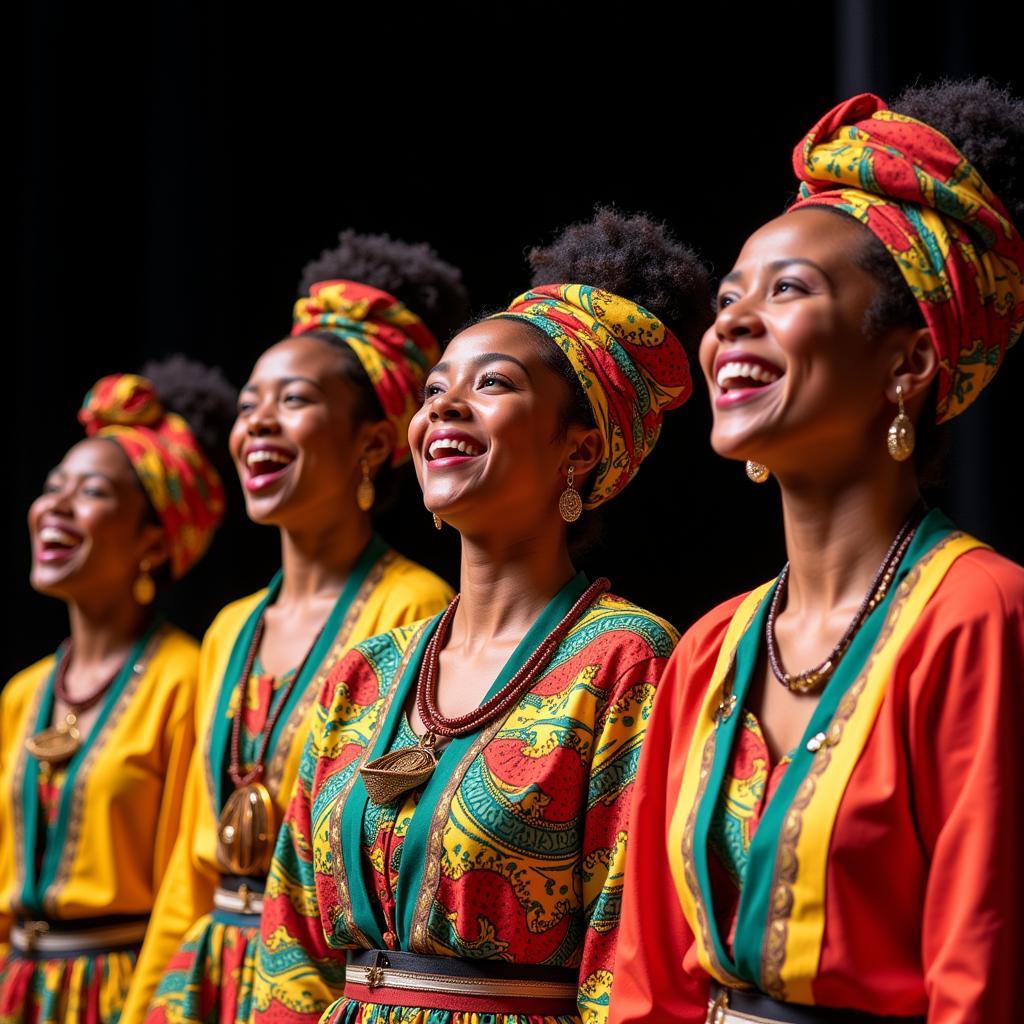A Journey Through Time: The African American Music Timeline
African American music is a vibrant and influential tapestry woven into the very fabric of American culture. From its roots in the spirituals sung by enslaved Africans to the global phenomenon of hip-hop, this musical journey is a testament to the resilience, creativity, and enduring spirit of a people. This timeline explores the evolution of African American music, highlighting key genres, artists, and events that have shaped the soundscape of a nation and captivated the world.
The Genesis: Spirituals and Work Songs (1619-1865)
The earliest forms of African American music emerged during the harrowing period of slavery. Spirituals, deeply religious songs infused with hope and longing for freedom, served as a source of solace and a covert means of communication. Work songs, with their rhythmic chants and call-and-response patterns, helped synchronize labor and provided a sense of unity among the enslaved. These raw, powerful expressions laid the foundation for the musical traditions that would follow.
The Dawn of Freedom: From Jubilee to Ragtime (1865-1910s)
The end of the Civil War ushered in a new era for African Americans, marked by both hope and continued struggle. Jubilee quartets, known for their harmonically rich renditions of spirituals, gained popularity. Meanwhile, the blues, a deeply personal and emotive genre expressing the joys and sorrows of Black life, emerged in the rural South. Around the turn of the century, ragtime, with its syncopated rhythms and infectious melodies, swept the nation, bridging the gap between Black and white musical traditions.
 Ragtime Musicians
Ragtime Musicians
The Jazz Age: Innovation and Improvisation (1920s-1930s)
The Roaring Twenties witnessed the birth of jazz, a revolutionary genre characterized by improvisation, syncopation, and a vibrant mix of African and European musical elements. Originating in the Black communities of New Orleans, jazz spread like wildfire across the country, captivating audiences with its raw energy and innovative spirit. Legends like Louis Armstrong, Duke Ellington, and Bessie Smith became household names, and jazz became a symbol of the cultural dynamism of the Harlem Renaissance.
The Soul of a Nation: Gospel, Rhythm and Blues, and Rock and Roll (1940s-1950s)
The mid-20th century saw the rise of gospel, a genre rooted in the Black church experience, with soaring vocals and powerful messages of faith and hope. Parallel to gospel’s spiritual fervor, rhythm and blues (R&B) emerged, blending blues with elements of jazz and gospel, paving the way for the birth of rock and roll. This electrifying new genre, pioneered by Black artists like Chuck Berry, Little Richard, and Sister Rosetta Tharpe, broke down racial barriers and forever changed the landscape of popular music.
 Chuck Berry Performing
Chuck Berry Performing
The Civil Rights Era: Music as a Weapon (1960s)
During the tumultuous Civil Rights Movement, music became a powerful tool for social change. Soul music, with its passionate vocals and messages of freedom and equality, emerged as the soundtrack of the movement. Artists like Aretha Franklin, Otis Redding, and James Brown used their platform to amplify the voices of the oppressed and inspire hope for a better future. At the same time, the rise of Motown Records, a Black-owned label, brought soul music to a wider audience and helped break down racial barriers in the music industry.
Funk, Disco, and the Birth of Hip-Hop (1970s)
The 1970s saw the emergence of funk, a genre characterized by infectious grooves, syncopated bass lines, and a focus on dance and rhythm. Pioneered by artists like James Brown, Parliament-Funkadelic, and Sly and the Family Stone, funk paved the way for disco, a genre that dominated the dance floors of the late 1970s. Meanwhile, in the streets of New York City, hip-hop was born, a cultural movement encompassing rap, DJing, breakdancing, and graffiti art. Hip-hop provided a voice for marginalized communities and became a global phenomenon, influencing music, fashion, and youth culture worldwide.
The Golden Age of Hip-Hop (1980s-1990s)
The 1980s and 1990s witnessed the golden age of hip-hop, marked by the emergence of iconic artists like Run-DMC, Public Enemy, Salt-N-Pepa, and N.W.A. These artists pushed the boundaries of the genre, tackling social and political issues in their lyrics and experimenting with new sounds and production techniques. Hip-hop became a dominant force in popular music, influencing everything from fashion to language.
 Public Enemy Concert
Public Enemy Concert
The New Millennium: From Neo-Soul to the Global Stage (2000s-Present)
The new millennium has seen African American music continue to evolve and innovate. Neo-soul artists like Erykah Badu, Lauryn Hill, and D’Angelo blended soul with elements of jazz, hip-hop, and funk, creating a sound that was both nostalgic and fresh. Hip-hop continued to dominate the charts, with artists like Jay-Z, Kanye West, and Beyoncé pushing the boundaries of the genre and achieving unprecedented levels of commercial success. Today, African American music remains a vibrant and influential force, shaping the soundscape of the world and inspiring generations of artists.
Conclusion
The African American Music Timeline is a testament to the enduring power of music to transcend barriers, inspire hope, and spark social change. From the spirituals sung by enslaved Africans to the global phenomenon of hip-hop, this musical journey is a rich and complex tapestry woven into the very fabric of American culture. As we continue to listen, learn, and celebrate the contributions of African American musicians, we gain a deeper understanding of the history, struggles, and triumphs of a people and the transformative power of music itself.
FAQs
What is the earliest form of African American music?
The earliest forms of African American music are spirituals and work songs, which originated during the period of slavery.
What role did music play in the Civil Rights Movement?
Music played a crucial role in the Civil Rights Movement, serving as a tool for social change, communication, and inspiration. Genres like soul and gospel became anthems of the movement, conveying messages of freedom, equality, and hope.
How has hip-hop evolved over the years?
Hip-hop has evolved significantly since its inception in the 1970s, from its early roots in block parties and park jams to a global phenomenon encompassing various subgenres, fashion, and cultural expressions.
Who are some of the most influential African American musicians of all time?
The list of influential African American musicians is vast, but some of the most notable names include Louis Armstrong, Duke Ellington, Bessie Smith, Chuck Berry, Aretha Franklin, James Brown, and many more.
How has African American music influenced global music?
African American music has had a profound impact on global music, influencing countless genres and artists worldwide. From jazz to hip-hop, the rhythms, melodies, and cultural expressions of African American music have left an indelible mark on the world’s musical landscape.
Looking for more insights into African American history and culture? Explore our other resources on African American history calendar or delve into the rich world of African American studies elementary school.
For a deeper understanding of the African American experience, we recommend “Many Rivers to Cross” – you can find more about it in our review of African Americans Many Rivers to Cross.
If you’re looking for age-appropriate reading material, check out our curated 6th grade African American reading list.
For educators, our African American Studies Pacing Guide can be a valuable resource in designing engaging and informative lessons.
Need further assistance?
Contact us at +255768904061, email us at kaka.mag@gmail.com, or visit us at Mbarali DC Mawindi, Kangaga, Tanzania. We have a dedicated customer support team available 24/7.



